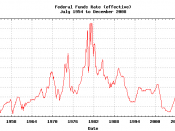U.S economy and congressTax occasion is not amusing, except you're an accountant observance a running tab of how a great deal you're billing clients. But this year tax terms even more upsetting than customary. You've been looking ahead to cashing in your share of the $3 trillion or so in tax cuts President George W. Bush has hard-pressed through in the past few years, those "actual and instant benefits to middle-income Americans" he's promised (the majority of people consider themselves middle-income these days). However, who can shape out this matter? yet accountants at the present get Excedrin headaches from an ever-more-complex position of rules: financial publisher CCH says its Standard Federal Tax Reporter, the tax-biz bible, has developed by a third in the past three years, to more than 60,000 pages. For a clearer picture of the U.S. economy here are some of the trends that affect us today. These indicators are the financial market, industrial sectors, inflation, unemployment, and consumer market.
Some of the more modern indicators are the sales of cars, new housing starts, and sales of durable goods. Prior to September 11, we learned that the recession began in March of 2001. In fact, the percentage of consumers rating today's economic condition as good is at its lowest level since April 1994. (Jacobe, 2002) Even though the United States economy is in a relatively shallow recession, industries are still working well because people are still buying things such as automobiles.
The U.S. economy has been growing slowly this year, the unemployment rate unexpectedly tapered off slightly in late summer, and there was another stock market rebound in October. But troubling signs, including four straight months of decline in the index of leading economic indicators, still overwhelm positive news.
The threat of war from terrorism unrest in the...



Good
Easy to read and understand, good use of statistics without being overwhelming. Nice basic paper.
0 out of 0 people found this comment useful.